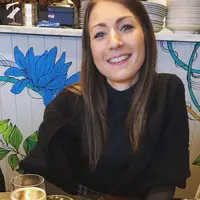Boris Johnson ‘set to introduce Plan B’ with work from home and vaccine passports
8 December 2021, 12:14 | Updated: 8 December 2021, 15:07
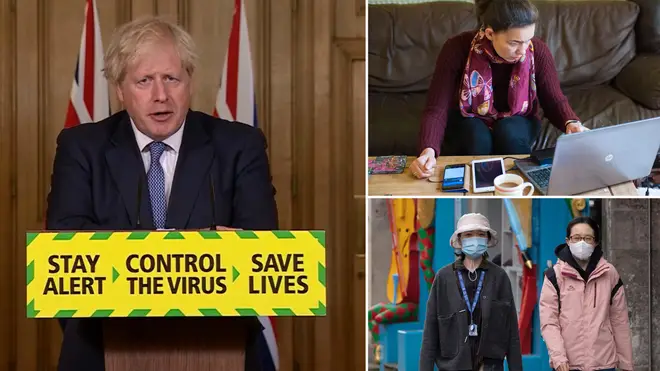
The Prime Minister is set to announce new rules in England to control the spread of the Omicron variant today.
Listen to this article
Boris Johnson is reportedly set to announce new Covid restrictions in response to rising numbers of the Omicron variant.
According to The Sun, ‘Plan B’ will require people in England to work from home and use vaccine passports.
Under the new rules, all but essential workers will be asked to return to remote working, while vaccine passports will be launched for large events like football matches and nightclubs.

Boris Johnson dodges MP question on 'Covid Plan B' during PMQs
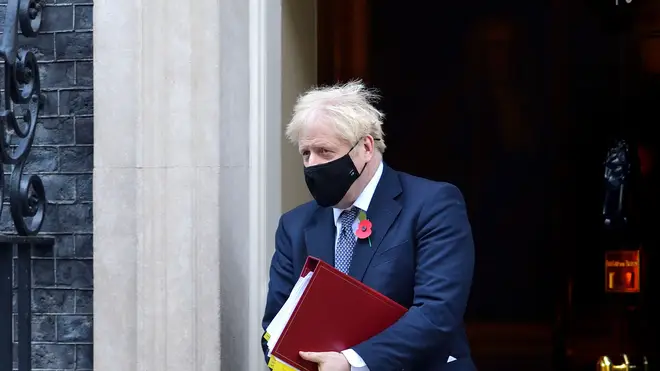
Mandatory face masks are already in force for shops and public transport, but this could be extended to all ‘crowded and enclosed settings’.
A senior official told The Sun the new rules could come into force as early as tomorrow morning.
A Downing Street spokesperson added to the publication that ‘no decisions have been made’.
This comes after the PM already reintroduced mandatory face mask wearing on public transport and in shops since the discovery of the Omicron variant.
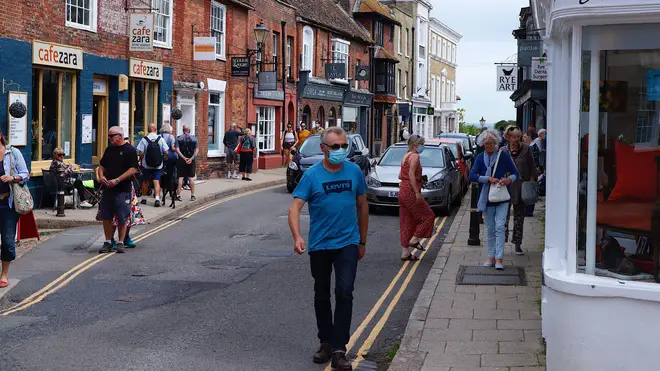
The government has also toughened travel restrictions, demanding holidaymakers isolate when they return home until they show a negative PCR test.
Many countries in southern Africa were also added to the UK's travel red list.
This comes after Senior Conservative MP Sir Charles Walker suggested new Covid measures could only be ‘advisory’.
He told Times Radio: "I think now that, going forward, any measures will be advisory.
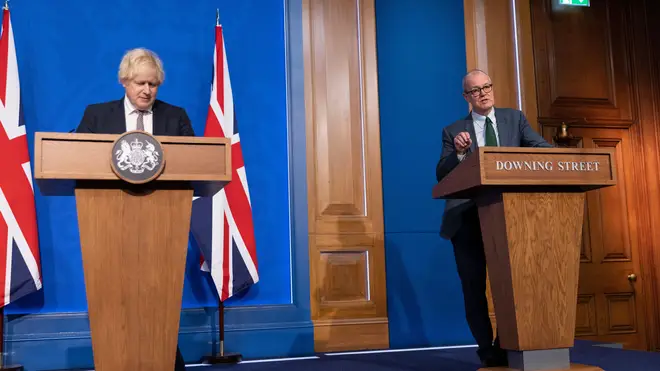
"I think it would be very difficult to enshrine them in law and then once again ask our poor police forces to enforce them."
But a member of the Scientific Advisory Group for Emergencies (SAGE) has said that a new COVID lockdown ‘might be possible’.
Professor Neil Ferguson, from Imperial College London told BBC: "It will be up to the government to decide what to announce in the coming days and weeks.
"There is a rationale, just epidemiologically, to try and slow this down, to buy us more time principally to get boosters into people's arms, because we do think people who are boosted will have the best level of protection possible, but also to buy us more time to really better characterise the threat."


